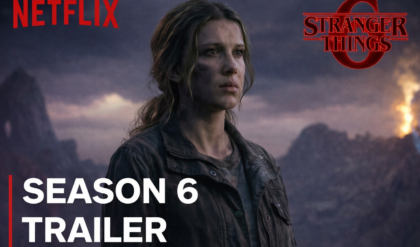Ubisoft’s Layoff Rumors and Assassin’s Creed Hexe Delay
The gaming industry is abuzz with speculation that Ubisoft, the French titan behind Assassin’s Creed, is poised for another round of layoffs following the announced delay of Assassin’s Creed Hexe and other major projects to 2026 or beyond. Fans and insiders are whispering, “We’re bracing for the worst!” as fears mount that the company’s cost-cutting measures could hit its workforce hard. Yet, no concrete evidence confirms new layoffs tied directly to the Hexe delay, suggesting the rumor may be an overblown reaction to Ubisoft’s turbulent 2024-25 financial year. With Assassin’s Creed Shadows scoring a hit and a $1.25 billion Tencent investment bolstering its future, this saga of delays, financial woes, and workforce anxiety reveals a company navigating a high-stakes transformation. Let’s unpack the rumors, explore the Hexe delay, and dive into why Ubisoft’s next moves are shaking the gaming world.

The Layoff Rumor
The rumor of impending layoffs surfaced in May 2025, fueled by Ubisoft’s announcement that Assassin’s Creed Hexe, alongside other “biggest productions,” would be pushed to the 2026-27 or 2027-28 financial years. Social media platforms like X amplified the speculation, with some users linking the delays to potential staff cuts, citing Ubisoft’s history of layoffs. In August 2024, the company cut 45 employees from its U.S. offices working on Assassin’s Creed and Star Wars Outlaws, a move that sparked outcry but wasn’t tied to Hexe. Earlier in 2025, Ubisoft closed its Leamington Spa office in England, part of broader cost-saving efforts amid financial struggles. These precedents have fueled fears that the Hexe delay could trigger another wave of redundancies, though no official statement from Ubisoft confirms this.
The lack of specifics about new layoffs suggests the rumor may be driven by industry anxiety rather than hard evidence. Ubisoft’s latest earnings report, released in May 2025, highlighted a return to losses despite Shadows’ success, with over 3 million players and the second-highest day-one sales in Assassin’s Creed history. The company’s decision to form a subsidiary for its top franchises—Assassin’s Creed, Far Cry, and Rainbow Six—with a $1.25 billion Tencent investment, was framed as a growth strategy, not a prelude to cuts. Still, the subsidiary’s focus on “evergreen” ecosystems and multi-platform development has raised concerns about workforce restructuring, especially for teams in Montreal, Quebec, and other hubs.
The Assassin’s Creed Hexe Delay
Assassin’s Creed Hexe, codenamed for its witch-themed setting, was unveiled in 2022 as a mainline RPG expected in 2026. Set potentially in 16th-century Europe during the witch trials, it promises a darker, more linear experience than recent open-world entries like Shadows. However, Ubisoft’s May 2025 earnings call revealed a delay to 2026-27 or even 2027-28, part of a broader push to give “additional development time” to its top franchises, including Far Cry, Rainbow Six, The Division, and Ghost Recon. CEO Yves Guillemot cited the success of Shadows, which benefited from multiple delays to March 2025, as proof that extra polish pays off, with the game logging 160 million hours across platforms.
The delay has been largely welcomed by fans, who see it as a commitment to quality after past rushed releases like Assassin’s Creed Unity’s buggy 2014 launch. Posts on social media praised Ubisoft’s shift, with one user noting, “Let them cook!” in reference to Hexe’s unique premise. However, the extended timeline has sparked speculation about resource allocation, especially as Ubisoft juggles nine Assassin’s Creed projects, including Jade (mobile, China), Invictus (multiplayer), and a Black Flag remake (Obsidian). The company’s review of its pipeline from October to December 2024, which prompted the delays, suggests a strategic pivot to avoid overextending its studios.
Ubisoft’s Financial and Structural Challenges
Ubisoft’s 2024-25 financial year was turbulent, with a net loss despite Shadows’ strong performance. The game, set in feudal Japan, sold over 3 million copies and became Ubisoft’s biggest day-one PlayStation Store launch, but it couldn’t offset earlier flops like Star Wars Outlaws and Skull and Bones, or the stalled Prince of Persia: The Sands of Time remake. The company’s stock value has plummeted in recent years, prompting a $1.25 billion deal with Tencent to create a subsidiary managing Assassin’s Creed and other top IPs. This move, set to finalize by late 2025, aims to stabilize finances but has raised fears of layoffs, as the subsidiary’s structure—spanning Montreal, Barcelona, and Sofia—may streamline or cut teams.
Past layoffs provide context. In 2023 and 2024, Ubisoft reduced staff globally, including 45 in the U.S. and the Leamington Spa closure, citing a “challenging period” in gaming. These cuts, alongside canceled projects like a God of War live-service game, reflect a cost-cutting ethos that could fuel the Hexe layoff rumor. However, the Tencent deal and Shadows’ success suggest Ubisoft is prioritizing long-term growth, with no immediate plans for mass redundancies. The company’s focus on delaying “biggest productions” to ensure quality, as seen with Shadows’ 80-hour gameplay and positive reception, indicates a shift away from rushed releases, potentially protecting jobs by reducing crunch.
The Fan and Industry Reaction
The Hexe delay and layoff rumors have divided the gaming community. On X, fans of Shadows—which recorded 40 million hours played in its first week—applauded Ubisoft’s delay strategy, hoping Hexe will match its polish. Others, wary of Ubisoft’s track record, fear the delays signal internal chaos, with one post speculating, “More layoffs are coming if they can’t ship on time.” The Assassin’s Creed franchise, with over 200 million copies sold and €4 billion in revenue from 2014-2024, remains a cash cow, but recent missteps like Unity’s bugs and Valhalla’s bloat have made fans skeptical of Ubisoft’s ability to balance quantity and quality.
The layoff rumor taps into broader industry trends. Layoffs have plagued gaming in 2024-25, with companies like EA, Sony, and BioWare cutting staff amid economic pressures. BioWare’s downsizing after Dragon Age: The Veilguard’s 1.5 million sales (vs. 3 million expected) mirrors Ubisoft’s challenges, where even successful titles like Shadows can’t fully offset losses. The Tencent investment, while a lifeline, has sparked concerns about creative control, with some fans fearing a shift to live-service models that could require fewer developers, fueling layoff speculation.
The Bigger Picture
The Hexe delay reflects Ubisoft’s attempt to learn from Shadows’ success, which overcame two delays to become the series’ second-biggest launch after Valhalla. The decision to give Hexe and other projects like Far Cry 7 more time aims to avoid the pitfalls of Unity’s rushed release, which suffered from bugs and poor reception. However, the lack of clarity about affected titles—beyond Hexe and Far Cry—and the absence of confirmed layoffs tied to the delay suggest the rumor may be an overreaction. Ubisoft’s subsidiary, backed by Tencent, is set to “spearhead development” on Assassin’s Creed, potentially stabilizing teams rather than cutting them.
The company’s broader roadmap, including Jade, Invictus, and Obsidian, shows ambition, but managing nine Assassin’s Creed projects risks overextension. Shadows’ community-driven updates, like new game+ and parkour improvements, prove Ubisoft can adapt, but Hexe’s witchy premise demands innovation to stand out. If layoffs occur, they’re more likely tied to financial restructuring or Tencent’s influence than Hexe’s delay alone, as the subsidiary’s formation suggests job transfers over cuts.
What’s Next for Ubisoft
As Ubisoft heads into 2026, its focus is on Shadows’ DLC, Jade’s mobile launch, and preparing Hexe for a polished debut. The Tencent deal, expected to close by late 2025, could reshape its workforce, but no evidence confirms imminent layoffs. Hexe’s delay, while disappointing, aligns with fan demands for quality, with its 16th-century setting poised to redefine Assassin’s Creed’s tone. The company’s ability to balance its pipeline, avoid past mistakes, and maintain morale amid rumors will determine its future.
For now, the layoff scare is just that—a scare, driven by Ubisoft’s rocky history and industry-wide layoffs. Assassin’s Creed remains a powerhouse, and Hexe’s extra time could cement its legacy. As fans await news, possibly at Ubisoft Forward 2026, the saga of delays, dollars, and dreams continues to grip the gaming world. Dive into the rumors, unpack the stakes, and see why Ubisoft’s turmoil has everyone buzzing.





